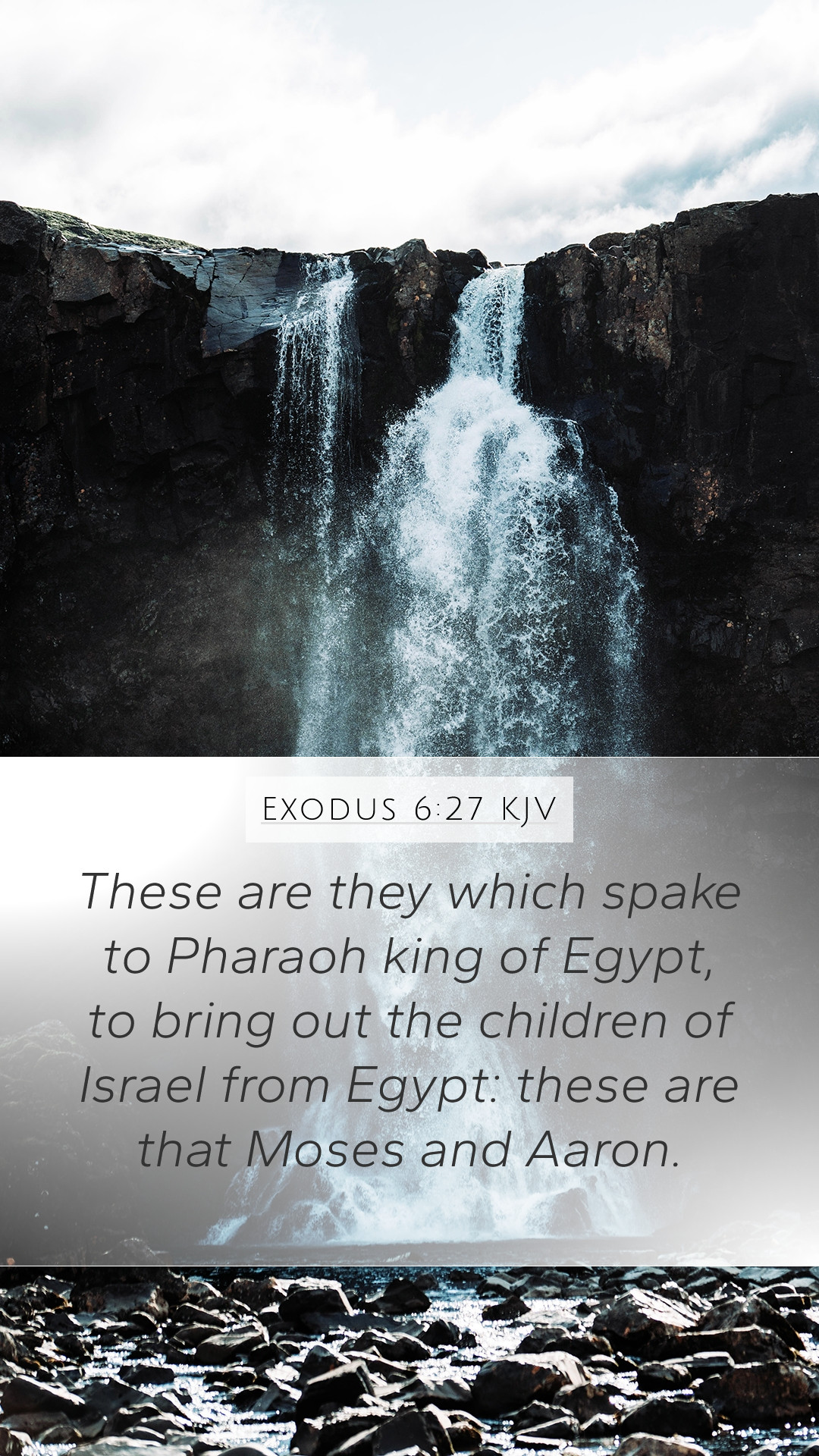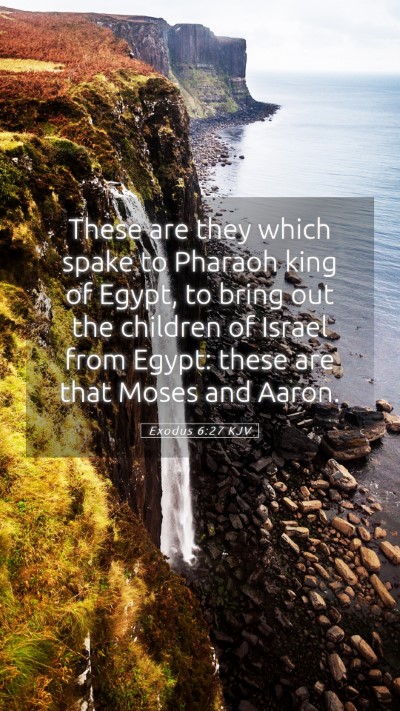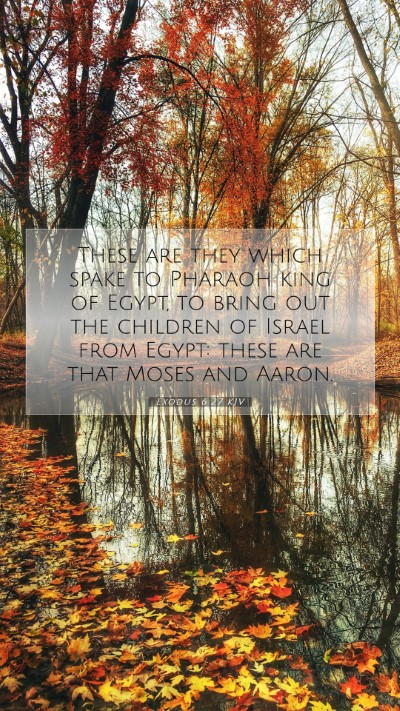Old Testament
Genesis Exodus Leviticus Numbers Deuteronomy Joshua Judges Ruth 1 Samuel 2 Samuel 1 Kings 2 Kings 1 Chronicles 2 Chronicles Ezra Nehemiah Esther Job Psalms Proverbs Ecclesiastes Song of Solomon Isaiah Jeremiah Lamentations Ezekiel Daniel Hosea Joel Amos Obadiah Jonah Micah Nahum Habakkuk Zephaniah Haggai Zechariah MalachiChapter
Exodus 1 Exodus 2 Exodus 3 Exodus 4 Exodus 5 Exodus 6 Exodus 7 Exodus 8 Exodus 9 Exodus 10 Exodus 11 Exodus 12 Exodus 13 Exodus 14 Exodus 15 Exodus 16 Exodus 17 Exodus 18 Exodus 19 Exodus 20 Exodus 21 Exodus 22 Exodus 23 Exodus 24 Exodus 25 Exodus 26 Exodus 27 Exodus 28 Exodus 29 Exodus 30 Exodus 31 Exodus 32 Exodus 33 Exodus 34 Exodus 35 Exodus 36 Exodus 37 Exodus 38 Exodus 39 Exodus 40Verse
Exodus 6:1 Exodus 6:2 Exodus 6:3 Exodus 6:4 Exodus 6:5 Exodus 6:6 Exodus 6:7 Exodus 6:8 Exodus 6:9 Exodus 6:10 Exodus 6:11 Exodus 6:12 Exodus 6:13 Exodus 6:14 Exodus 6:15 Exodus 6:16 Exodus 6:17 Exodus 6:18 Exodus 6:19 Exodus 6:20 Exodus 6:21 Exodus 6:22 Exodus 6:23 Exodus 6:24 Exodus 6:25 Exodus 6:26 Exodus 6:27 Exodus 6:28 Exodus 6:29 Exodus 6:30


Exodus 6:27 - Verse Meaning and Commentary
Bible Verse: Exodus 6:27 states, "These are they which spake to Pharaoh king of Egypt, to bring out the children of Israel from Egypt: these are that Moses and Aaron."
Overview
This verse plays a crucial role in the narrative of the Exodus, providing a summary of key characters, Moses and Aaron, who are tasked with delivering God's people from bondage in Egypt. The verse emphasizes their significance as the mediators between God and Pharaoh, underscoring the biblical theme of divine deliverance and the fulfillment of God's promises.
Commentary Insights
Henry notes that this verse marks the identity of the leaders chosen by God for the monumental task of leading Israel out of captivity. He emphasizes the notion of calling, indicating that God equips and appoints individuals for specific purposes. The repetition of Moses and Aaron's names highlights their central roles in God's plan for Israel.
Barnes explains how this verse serves as a reminder of the historical context of the Exodus narrative. It situates Moses and Aaron not just as leaders, but as obedient servants of God who confront Pharaoh at the divine behest. This act is depicted as a struggle between divine authority and human rebellion.
Clarke emphasizes the familial connection between Moses and Aaron, recognizing their joint mission. He elaborates on the prophetic dimension of their task, indicating that Moses functions as a prophet to Pharaoh, while Aaron acts as his spokesperson. This partnership is critical for understanding the dynamics of their leadership.
Significance of the Verse
The verse encapsulates the initiation of God's redemptive plan for the Israelites, marking a pivotal moment in their history. By focusing on Moses and Aaron’s roles, it reflects on themes of leadership, obedience, and the challenge of standing firm in faith against powerful opposition.
Application in Daily Life
Modern readers can draw inspiration from Exodus 6:27 through several applications:
Related Bible Cross References
Conclusion
Exodus 6:27 may appear brief, but it encapsulates profound theological and practical truths that resonate with believers today. Through the lens of Bible verse meanings and Bible verse interpretations, we see the intertwining of history, divine purpose, and the legacy of faithful leadership. As believers engage in Bible study and communal discussions, this verse fosters deeper Scripture analysis and understanding.